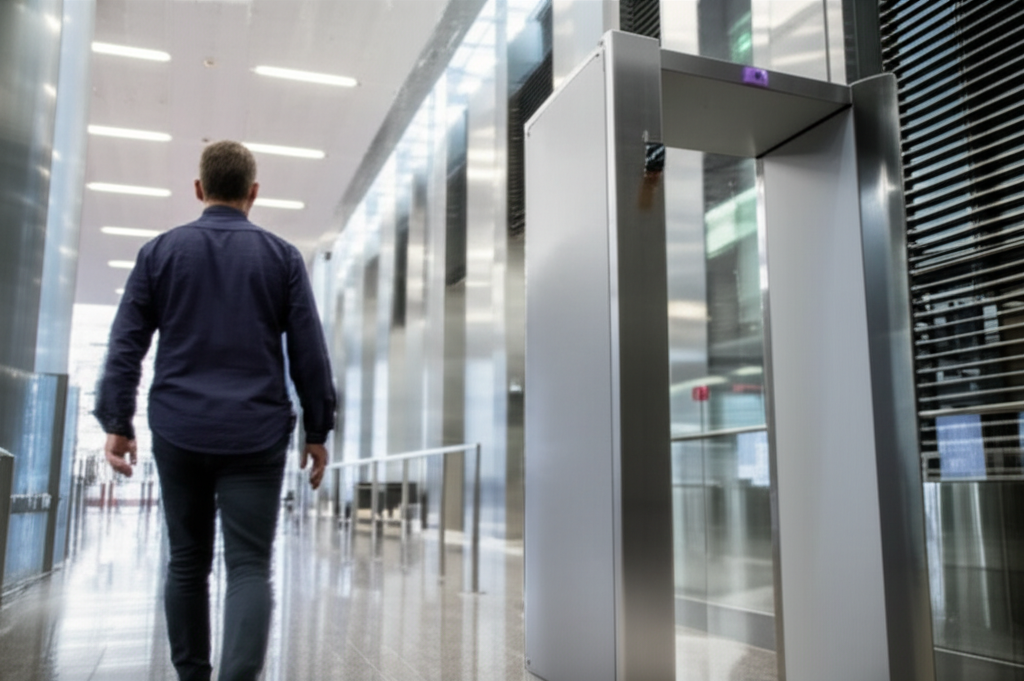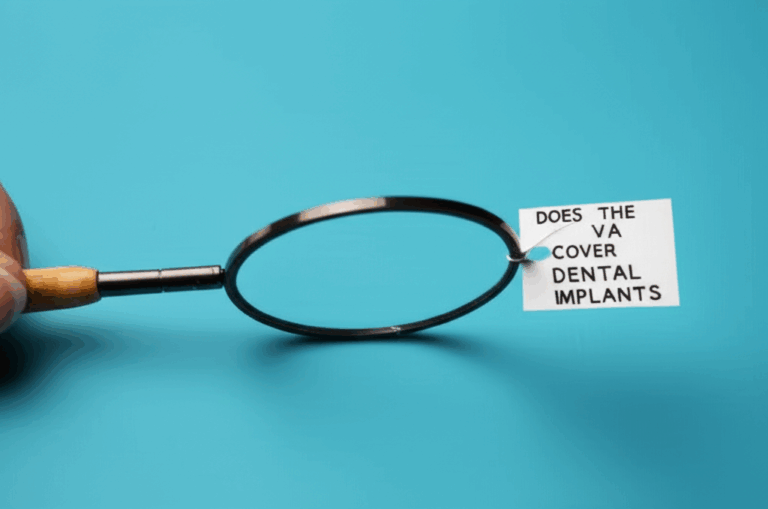
Do Dental Implants Set Off Metal Detectors? Your Easy Guide to Worry-Free Security Checks
Ever waited in a long airport security line, feeling your heart race, scared your dental implants might beep at the scanner? You’re not the only one! Lots of people wonder about this. Here’s the great news: dental implants almost never make metal detectors beep—and today, you’ll learn why. If you’ve got dental work and like to travel, this guide is for you. Let’s find out how dental implants and today’s security machines really work together. You’ll finish reading this knowing what to expect, feeling relaxed, and ready for your next trip.
Table of Contents
What Are Dental Implants?
Dental implants are small things that replace tooth roots. A dentist or surgeon puts them into your jaw to hold new teeth if you’ve lost some or all of your real teeth. Dental implants usually look like tiny screws. Their job? Hold crowns, bridges, dentures, or even a set of new teeth in place.
Why get dental implants?
They look and feel like real teeth. You can eat, smile, and talk without trouble.
Want to know more about different dental choices or how implants stack up to other kinds? Check this dental implant post.
How Do Metal Detectors Work?
If you’ve walked through a metal detector at the airport, school, or stadium, you might wonder what’s happening.
Metal detectors use magnetic fields. When you walk through, the machine makes waves that bounce off metal things. If you’ve got a big metal thing like a belt buckle or keys, the waves get messed up. The machine feels this and the alarm goes off.
But here’s the deal: metal detectors aren’t set to beep for every little bit of metal. If they did, they’d never stop beeping! They’re set to find things big enough to worry about.
Kinds of detectors:
- Walk-through detectors (like the tall gates at airports)
- Handheld wands (used by security if they want to be sure)
- Full body scanners (they use radio or X-ray waves)
They work a little different, but mostly try to find hidden weapons.
Do Dental Implants Have Metal?
A lot of people ask: Do dental implants really have metal in them?
Yep, many dental implants are made from titanium, a tough metal the body doesn’t fight off. The bone even grows around the implant—a thing called osseointegration.
Some new implants are made from zirconia, a high-tech ceramic. This isn’t metal at all, but it’s still hard, and it doesn’t set off the detector.
Here’s a simple table:
| Material | Metal? | Magnetic? | Found in Detectors? | Used for… |
|---|---|---|---|---|
| Titanium | Yes | No | Hardly ever | Most implants |
| Zirconia | No (ceramic) | No | Never | Metal-free implants |
| Amalgam | Yes | No | Rare | Older fillings |
| Gold, Platinum | Yes | No | Rare | Crowns/bridges |
Will Dental Implants Set Off Airport Metal Detectors?
So, you’re getting on a plane and wondering—do dental implants make the alarm go off?
The quick answer: almost never.
Dental implants are way too small for regular metal detectors to care about. Airport machines are made to find bigger, dangerous things—like knives or guns. Tiny implants in your jaw aren’t even close to making it beep.
For example, I’ve flown all over—from huge airports to small town ones. My dental work never set off the alarm. Like a lot of people with implants, you’ll get through just fine.
Even if you have crowns, bridges, or a whole row of teeth held up by implants, you shouldn’t have any trouble. Braces and retainers hardly ever cause problems either.
If you want to see how these things are made, check out this china dental lab to get a behind-the-scenes look.
Types of Dental Implants and What They’re Made Of
Did you know there’s more than one kind of implant? Let’s explain a little:
Most Common Materials
- Titanium: Over 90% of implants use this metal. It’s strong and works well with the body.
- Zirconia: These are getting more popular. They’re white, ceramic (not metal), and metal-free.
Types of Implants
- Single tooth implants: Replace just one tooth.
- All-on-4 dental implants: Hold up a whole row of teeth on just 4 screws.
- Full mouth implants: If you need all your teeth replaced.
- Mini implants: Skinnier, smaller versions for tight spaces.
Will any of these set off the airport scanner?
- Titanium: Not magnetic, small, not likely to beep.
- Zirconia: Not metal, so not a chance it beeps.
Want a closer look at modern implants? Visit a zirconia lab to learn more.
How Good Are Security Scanners?
Let’s talk about why security tools almost never spot dental implants.
How Sensitive Are They?
Airport and public scanners are set to find middle or big things—like a gun or tool. Dental implants are only about 3-6mm wide and 6-16mm long. That’s tiny! And they’re buried in your jaw, not on the surface like keys in your coat.
Scanners are made to ignore little, deep, and non-magnetic bits of metal. Most alarms come from coins, belts, or watches—not tiny screws inside your mouth.
Types of Scanners
1. Walk-through detectors: The usual airport gates. Implants are too small for these to spot.
2. Handheld wands: Used if the gate beeps. Unless you have a big group of metal next to the skin, you should be fine.
3. Body scanners: New airports use these. They look for weird shapes or thick spots, but implants are too small and deep to care about.
Even a mouth full of implants is too small. If you have a big piece of metal somewhere else (like a replacement hip), that’s another story—but one or two little implants? You’re good.
Dental Implants vs Other Medical Implants
Here’s how dental implants stack up to other stuff you might have in your body.
| Device | Metal Amount | Where It Is | Likely to Set Off? |
|---|---|---|---|
| Dental implants | A few grams | Jaw | Not likely |
| Knee/Hip replacements | Hundreds of grams | Leg/Hip | Likely |
| Pacemakers | Small, on surface | Chest | Not often |
| Braces | A few grams | Teeth | Sometimes |
| Surgical screws/plates | Small | Bones | Not likely |
Metal detectors look for bigger, surface stuff. Hip replacements or heavy medical things have way more metal and are close to the skin—making them easy for detectors to find.
Dental implants are deep inside your jaw, and too tiny for scanners to care about. Security almost never needs to worry about them.
What If the Alarm Does Go Off?
Sometimes the alarm beeps even if you did nothing wrong. Maybe it’s your belt or change in your pocket. But what if you get stopped?
Don’t worry. Most beeps come from normal stuff—not dental implants.
What Happens Next
Worst case, you might go to a separate room, but it’s usually fast and polite. You won’t miss your flight because of dental implants.
If you want to read more about what can make a dental alarm beep, check out our dental problems page.
Myths and Facts About Dental Implants and Security
Let’s clear up a few stories people tell.
Myth 1: “Any metal in my body will set off the alarm.”
Fact: Not true! Size and place matter. Tiny, deep-down implants don’t make the machine beep.
Myth 2: “I have to carry special papers to fly with dental implants.”
Fact: You don’t need anything special for dental implants. Only really big medical stuff might need a note.
Myth 3: “Dental implants are magnetic.”
Fact: Titanium is not magnetic. Zirconia is not even metal.
Myth 4: “Fillings, crowns, braces beep at security.”
Fact: Most of these are tiny or not made of iron, so detectors ignore them.
Security people and dentists all say: dental work won’t hold you up when you travel.
Tips for Traveling With Dental Implants
Want a smooth trip? Here’s a handy checklist:
A little planning goes a long way—most people with implants breeze through airports every time.
Conclusion: Take It Easy and Enjoy Your Trip
Here’s what you should remember: dental implants won’t stop you from traveling. Hardly anyone ever gets stopped because of them. Millions with titanium or ceramic dental work walk through detectors every single day—no sweat.
If you’re ever not sure, ask your dentist before you leave. Use a good lab for your dental stuff. It’s simple once you know the facts.
Ready to fly, see family, or go somewhere cool? Your smile (and your implants) go right with you—no need to worry at airport security.
Main Things to Remember
- Dental implants almost never set off metal detectors.
- Implant materials like titanium and zirconia work well in the body and aren’t magnetic.
- You don’t need a note or card for dental implants at airport security.
- Scanners look for bigger, surface things—not tiny screws in your jaw.
- Braces, crowns, or even a full row of dental implants are usually ignored too.
- If anyone asks, just tell them about your dental work—security staff see this all the time.
- For worry-free smiles, pick strong implants from a trusted implant dental laboratory.
Travel with a smile—your implants can go anywhere you go!








